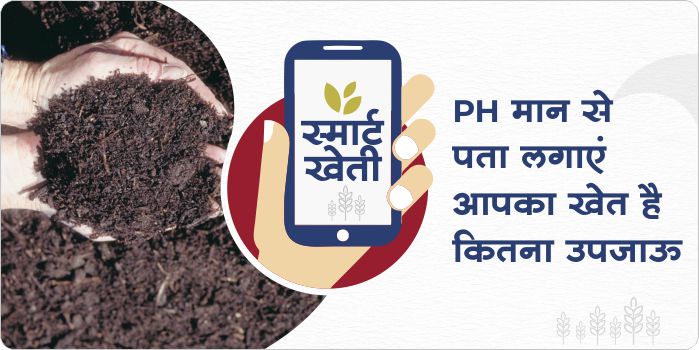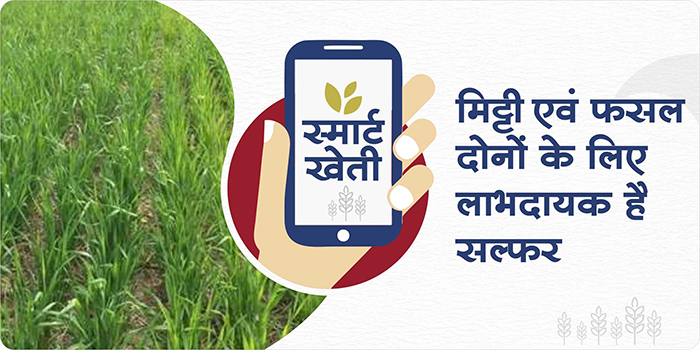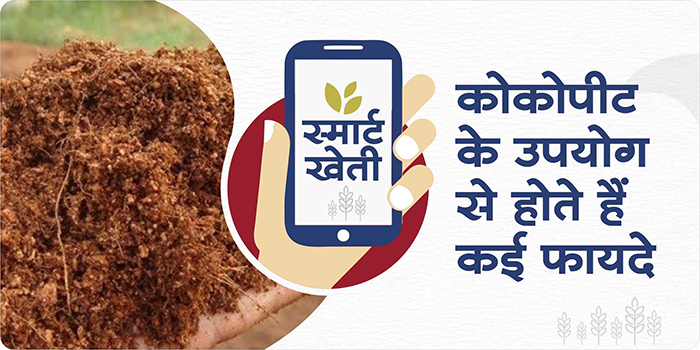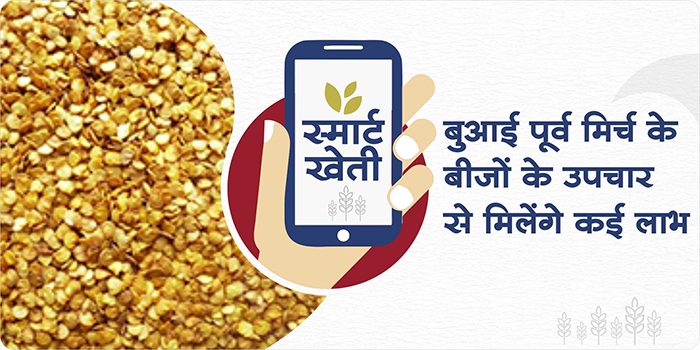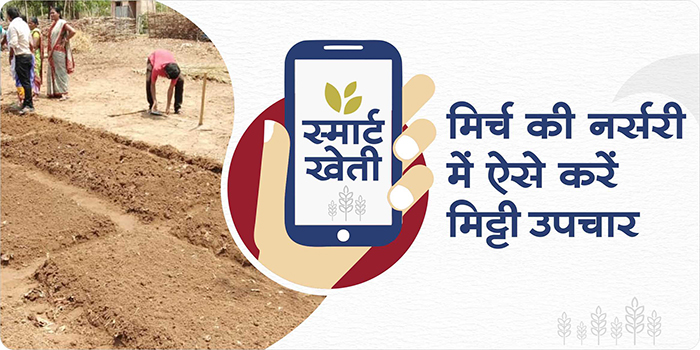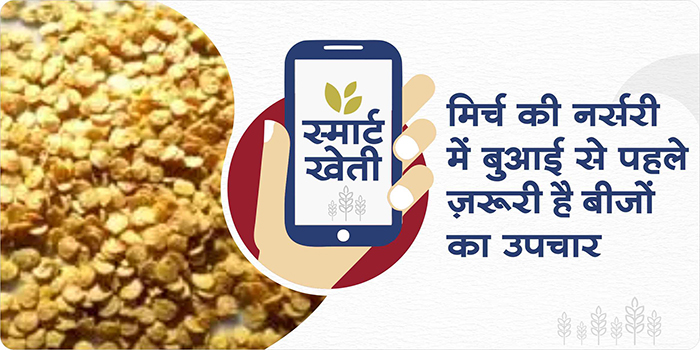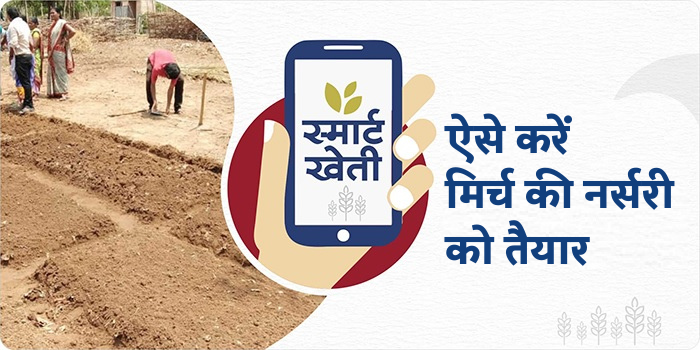-
Soil testing can detect not only the soil pH but also the electrical conductivity, organic carbon, major nutrients, and micronutrients.
-
The normal, acidic or alkaline nature of soil can be ascertained from soil pH value. Soil pH decreasing or increasing affects the growth of plants.
-
After finding out Soil pH, suitable crop varieties are recommended in problem-prone areas which can tolerate acidification and alkalinity.
-
Nutrients are most commonly received by plants between values 6.5 to 7.5 Soil pH. That is, the plant gives good yield with total growth. On the other hand, the value is less than 6.5 pH, the land is acidic and If the value exceeds 7.5 pH, the land is called alkaline.
-
Adding lime for acidic land and gypsum for alkaline land is generally recommended.
Importance of Sulfur in crops
-
Sulfur helps increase the percentage of protein in crops, as well as sulfur contributes to the production of chlorophyll, which causes the leaf to remain green and produce food for plants.
-
Sulfur increases the efficiency and availability of nitrogen.
-
The use of sulfur in pulses helps make more root nodes of the plants so that nitrogen fixation from the atmosphere by Rhizobium bacteria presents the roots of plants.
-
Enhances the quality of tobacco, vegetables, and fodder crops.
-
The important use of sulfur is to increase the amount of protein and oil in oilseeds.
-
Sulfur increases the amount of starch in potatoes.
-
Sulfur is called soil reformer because it lowers the pH of the soil.
This is how coco peat is prepared from coconut fibers
-
Many essential nutrients are found naturally in coconut fibers. The process of producing the soil by mixing these coconut fibers with other nutritional salts artificially is called “coco peat”.
-
It is a product of the coconut industry and also provides an additional source of income to the people of coastal areas.
-
This is achieved by rotting the fibers on top of the coconut and peeling and turning it into powdered form.
-
Both Peat moss or coco peat have the same purpose. Both make the pot soil ventilated as well as keep the moisture in it, it is also very light.
Work to be done in the empty field in summer
-
During summer, many farmer’s fields are empty, for this summer season is very suitable for doing important work related to the farm.
-
Farmers increase the fertility of their fields by converting crop residues in their fields into useful manure using decomposers in the fields lying vacant during the summer season.
-
You can increase the fertility of the field by putting old completely compost cow dung in the field.
-
By deep plowing of the field, the seeds of weeds growing in the field can be destroyed.
-
Thus all these tasks can be done in summer
How to use Decomposer before sowing chilli
-
Decomposer is a type of bio fertilizer that also acts as a fertility enhancer in the soil.
-
It should also be used when the crop has been harvested from the field.
-
Farmers should use powder form decomposer at the rate of 4 kg per acre in field soil or cow dung.
-
Maintain a small amount of moisture in the field, you can transplant chilli crop after 10 to 15 days of broadcast.
-
Since these microorganisms work to convert the residue of old crops into manure, their digestion process changes from anaerobic to aerobic,
-
Which destroys pathogenic and harmful organisms. Through biological enrichment and the synergistic action of enzymatic catalysis, chronic residues are converted into healthy, rich, nutrient-balanced fertilizers.
ShareFor such important information related to smart agriculture, read Gramophone’s articles daily. Share this article with your friends by clicking the share button.
Benefits of Chilli Seed Treatment
-
By treating seeds of chilli, seeds can be easily protected from the insect and fungal diseases.
-
This helps in good growth and development of the roots, the number of white roots increases and the chilli crop gets a good start.
-
The use of organic insecticide by treating seeds is beneficial for the prevention of termites and white grubs etc. in the soil.
-
By treating seeds with fungicides, the germination capacity of the crop increases.
How to do soil treatment in chili nursery
-
In a nursery, sowing of chilli after soil treatment is very good and free from disease.
-
For soil treatment use 10 kg FYM,1 kg DAP and Maxxroot 100 grams per square meter.
-
To avoid ants and termites, use Carbofuran @ 15gm per bed, and then sow the seeds.
-
After the soil treatment, sow the chilli seeds and irrigate the bed as per requirement after sowing.
-
In the nursery stage of chilli, weeding is needed to prevent weeds.
How to treat seed before sowing of chilli nursery
- It is very important to do seed treatment before sowing of chilli, so sowing of the chilies should be done if possible by seed treatment.
- In chilli, seed treatment is done by both chemical and biological methods.
- Chemical treatment: – Carbendazim 12% + Mancozeb 63% @ 2.5gram/kg seed, or Thiamethoxam 30% FS @ 6-8ml/kg seed, used for seed treatment.
- Biological treatment: – Seed treatment at the rate of Trichoderma viride @ 5-10gram/kg seed or Pseudomonas fluorescens @ 5-10gram/kg seed.
How to prepare for chilli Nursery
-
Chillies are normally prepared in the nursery, because better results are obtained by preparing seedlings in the nursery.
-
Prior to plowing, clean the selected area for nursery first.
-
The selected area should be well drained, and free from water logging
-
There should be proper sunlight.
-
Nursery should have proper arrangement of water and irrigation so that irrigation can be done on time.
-
This area should be well protected from pets and wild animals.
-
Sandy loam and loam soil rich in organic matter are suitable.
-
For healthy transplanting, the soil should be free from pathogens.
-
After this, before preparation of the beds, cultivate the land twice with the plow, for seeds sowing make the raised beds (like 33 ft × 3 ft × 0.3 ft) as per the requirement.
How to manage soil health in polyhouses
-
Different types of fertilizers are used continuously throughout the year in poly houses / greenhouses.
-
For this reason, the health of the polyhouse soil starts to deteriorate within 3-4 years. Despite good seeds, proper nutrients and all precautions, there can be a huge decrease in the yield and quality of the crop.
-
Therefore, it is necessary that in order to do scientific farming, farmers should constantly examine the health of the soil and maintain complete information about it.
-
Correct sampling is very important for soil testing.
-
The sample is taken from different locations inside the polyhouse/greenhouse. Then it is mixed well and divided into four parts.
-
Repeat this process until the remaining sample weighs half a kilogram.
-
The samples obtained in this way are sent to the testing center. And according to the report farm fertilizer is used.

